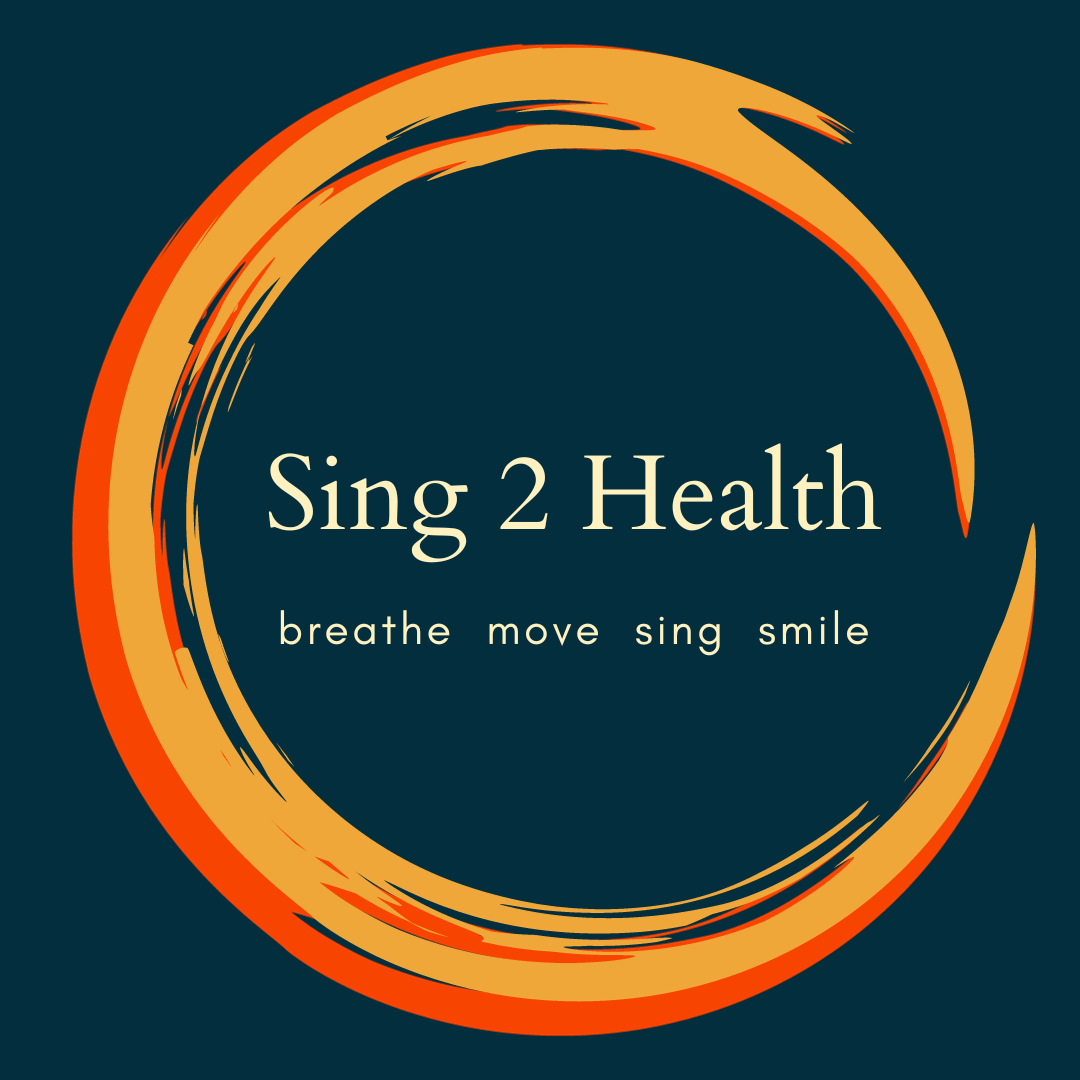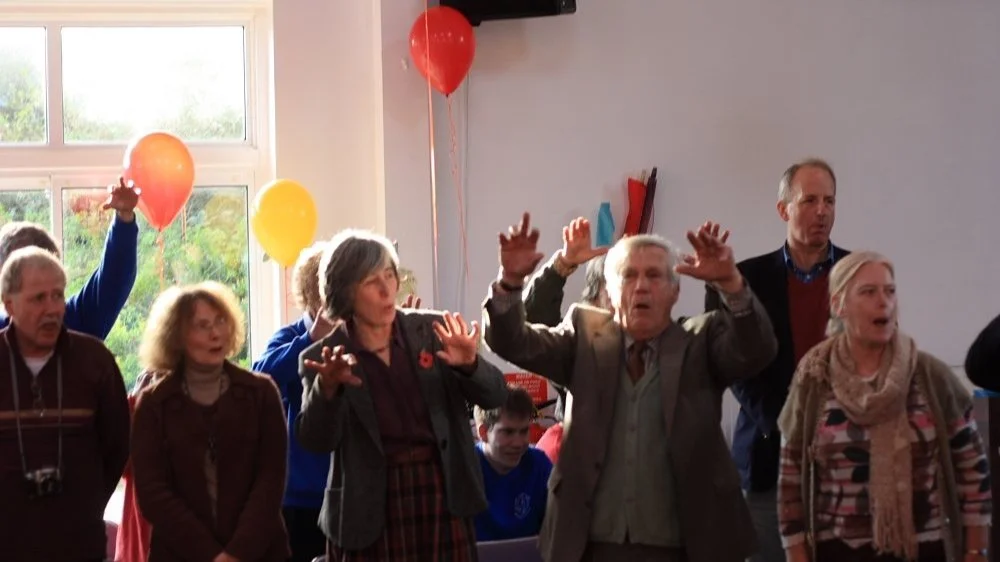Overview of Singing for Health Research*
General wellbeing / mental health / immune function
Taking part in group singing is associated with enhanced well-being, improved quality of life, ability to cope and self-awareness (Daykin et al, 2018)
Singing can promote the reduction of stress hormone (cortisol) (Bongard et al, 2004; Fancourt et al, 2016)
Group singing has been shown to regulate breathing and heart rate, calming the nervous system (Vikhoff et al, 2013)
Immune function can be improved through singing, as indicated by reduction in cortisol and increased cytokines in cancer patients and their families (Fancourt et al, 2015)
Taking part in arts activities has significant impact on reducing loneliness and even prolonging life (Fancourt et al, 2019)
Sharing music with others served an evolutionary purpose of holding people together (Schafer et al, 2013)
Making music builds empathy, trust and social bonding (Levitin, 2016)
Singing with a group can be a spiritual experience and one of transcendence and connection (Camlin et al, 2020)
Social vocalisations can produce oxytocin (Seltzer et al, 2010)
Singing or Chanting, across cultures, brings people together so that “feelings in common are expressed through actions in common” (Durkham, 1995 p.390)
Singing can have an ice breaking effect (Dunbar et al, 2015)
Taking part in arts activities can promote all aspects of well-being (Fancourt et al, 2020) including hedonic well-being (Kahneman et al, 1999) and eudaimonic well-being (Deci & Ryan, 2001)
General physical health
There is a strong relationship between psychological and physical improvements as a result of group/choral singing among people with or without chronic illnesses (Campbell et al, 2021)
Better nutrition and less body fat in singers (controlled study with 100 singers) Wiech et al, 2020 JOV (in press)
Respiratory health
Managing breathlessness and symptoms of chronic lung diseases (such as COPD) (Clift et al, 2013; Lewis et al, 2016; Amadi et al, 2015; Bott et al, 2016)
The encouragement of deeper breathing and extension of exhalation helps to improve lung function and reduce feelings of anxiety, often linked with lung disease (Baldwin et al, 2006).
Lengthening the exhalation, slow and diaphragmatic breathing increases Parasympathetic Nervous System, measured by blood pressure, heart rate and heart rate variability (HRV) (Perciavalle et al, 2017; Tavares et al, 2017)
Taking part in singing (standing up) induced responses that were consistent with moderate intensity (physical) activity (comparing singing for lung health to treadmill walking) (Philip et al, 2020)
Dementia
Singing for people with Dementia has shown improvements in general feelings of well-being as well as stimulating memory responses and promoting sense of belonging and social bonding (Osman et al, 2016).
Songs can stimulate memories, induce feelings of nostalgia and provoke emotional responses (Buchanan, 2007)
Improvements in cognition (Brancatisano et al, 2019; Osman et al, 2016)
Improvements in verbal fluency (Brancatisano et al, 2019)
Mood enhancement and positive emotions (Cohen-Mansfield et al, 2012; Osman et al, 2016)
Increased ability to decode and retrieve new information, even with advanced AD (Oostnedorf & Montel, 2014)
Improvements in quality of life and reduction in anxiety and depression (Cooke et al, 2010; Camic et al 2011)
Pain management
Singing has been shown to promote the production of endorphins, our natural pain killer (Smith et al, 2010)
Small-scale studies suggest that singing can support people with the management of chronic pain – something affecting between a third and half of the population (Croft et al, 2016)
Impacts on mood, coping with pain and perceived levels of pain in singing group attached to Pain Clinic (Faunce and Kenny, 2004)
Singing within a Pain Clinic setting 2016 – significant improvements in mental well-being (Hopper et al, 2016)
(Bradt et al, 2016) 22 participants in New York over an 8 week project involving relaxation, voice, body, breath and singing. Participants reported improved ability to manage pain and stress relieving benefits. Participants felt a greater sense of well-being and self-care and reported a reduction in depression
Community singing programme for people with chronic pain (Curtis et al, 2016) found very similar results as the other studies from interviews with 7 participants
Singing has the potential to support the tolerance of pain more than listening to music or silence (LiKamWa et al, 2020)
Parkinson’s and other neurological conditions
Singing can improve gait in people with Parkinson’s (Harrison et al, 2017) and may aid communication skills for people with Parkinson’s (Barnish et al, 2016)
Singing for Parkinson’s Disease has been found to improve symptoms including speech loss and dysphagia (difficulty with swallowing) as well as promote improved posture and breathing (Hibbing et al, 2016).
Following the success found in Melodic Intonation Therapy (Albert et al, 1973; Van der Meulen et al, 2014), studies have shown that singing has the potential to support people with aphasia (loss of speech) (Schlaug et al, 2010; Tarrant et al, 2021)
Children and young people
A study of nearly 4,000 children found that singing improved confidence and self-esteem (both elements of Executive Functioning) (Welch et al, 2011)
Singing can improve self-esteem and reduce depression in children and young people (Porter et al, 2017)
Rap can structure emotional expression and help regulate aggression & Singing can support expression of deeper emotional involvement in young people (Ulhig et al, 2017)
*Taken from the Singing for Health Network

